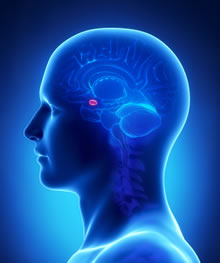

| Visitors Now: | |
| Total Visits: | |
| Total Stories: |

| Story Views | |
| Now: | |
| Last Hour: | |
| Last 24 Hours: | |
| Total: | |
When Being Scared Twice Is Enough To Remember
Their experimental system could be a way to test or refine treatments aimed at enhancing learning and memory, or interfering with troubling memories. The results were published this week in the Journal of Neuroscience.

The researchers set up a system where rats were exposed to a light followed by a mild shock. A single light-shock event isn’t enough to make the rat afraid of the light, but a repeat of the pairing of the light and shock is, even a few days later.
“I describe this effect as ‘priming’,” says the first author of the paper, postdoctoral fellow Ryan Parsons. “The animal experiences all sorts of things, and has to sort out what’s important. If something happens just once, it doesn’t register. But twice, and the animal remembers.”
Parsons was working with Michael Davis, PhD, Robert W. Woodruff professor of psychiatry and behavioral sciences at Emory University School of Medicine, who has been studying the molecular basis for fear memory for several years.
Even though a robust fear memory was not formed after the first priming event, at that point Parsons could already detect chemical changes in the amygdala, part of the brain critical for fear responses. Long term memory formation could be blocked by infusing a drug into the amygdala. The drug inhibits protein kinase A, which is involved in the chemical changes Parsons observed.
It is possible to train rats to become afraid of something like a sound or a smell after one event, Parsons says. However, rats are less sensitive to light compared with sounds or smells, and a relatively mild shock was used.
Scientists have been able to study the chemical changes connected with the priming process extensively in neurons in culture dishes, but not as much in live animals. The process is referred to as “metaplasticity,” or how the history of the brain’s experiences affects its readiness to change and learn.
“This could be a good model for dissecting the mechanisms involved in learning and memory,” Parsons says. “We’re going to be able to look at what’s going on in that first priming event, as well as when the long-term memory is triggered.”
“We believe our findings might help explain how events are selected out for long-term storage from what is essentially a torrent of information encountered during conscious experience,” Parsons and Davis write in their paper.
The research was supported by the National Institute of Mental Health (R37 MH047840 and F32 MH090700).
Contacts and sources:
Writer: Quinn Eastman
Holly Korschun
Emory University
Read more at Nano Patents and Innovations
Source:


